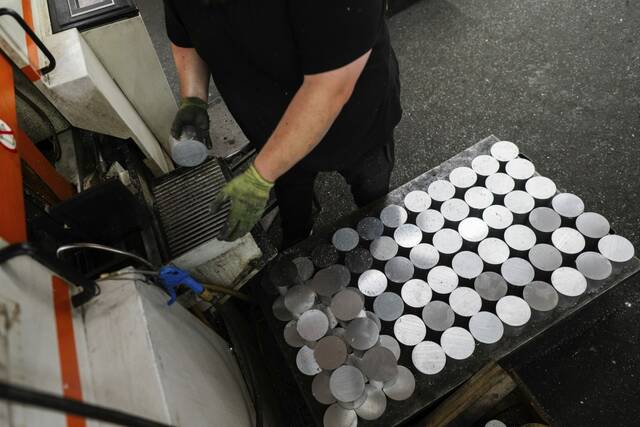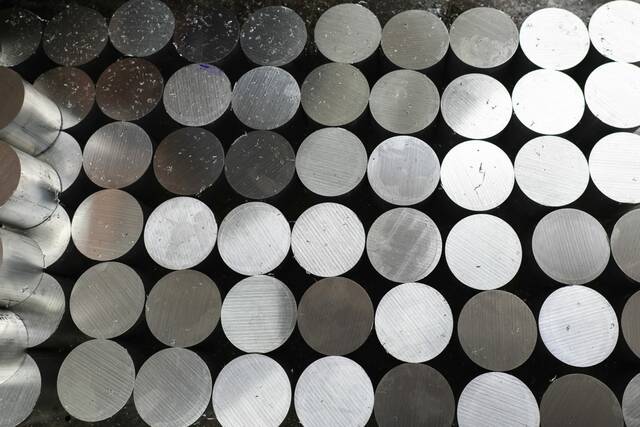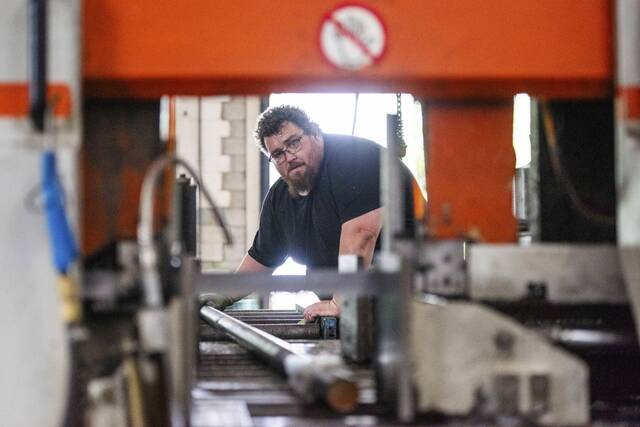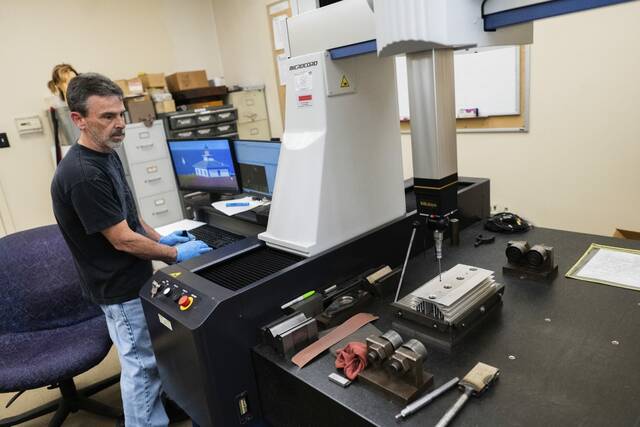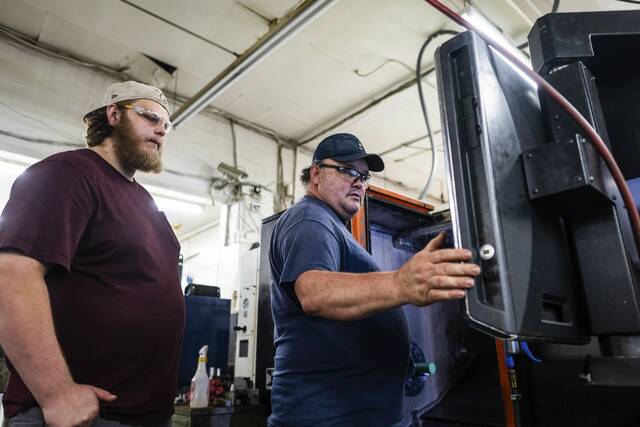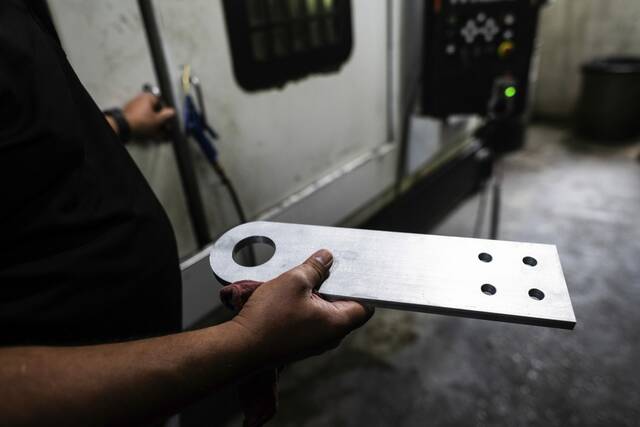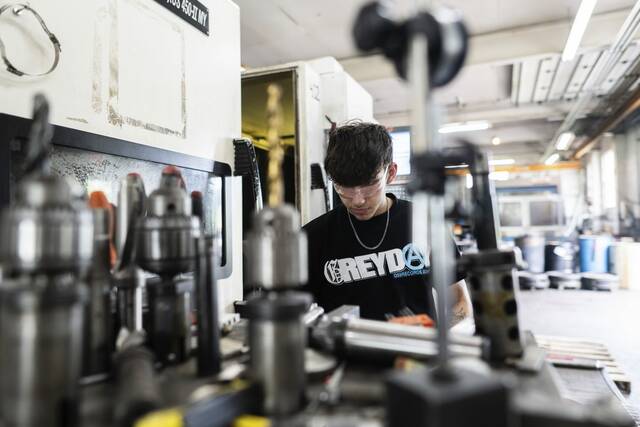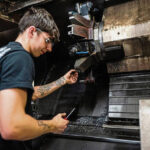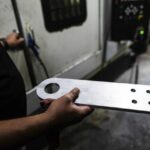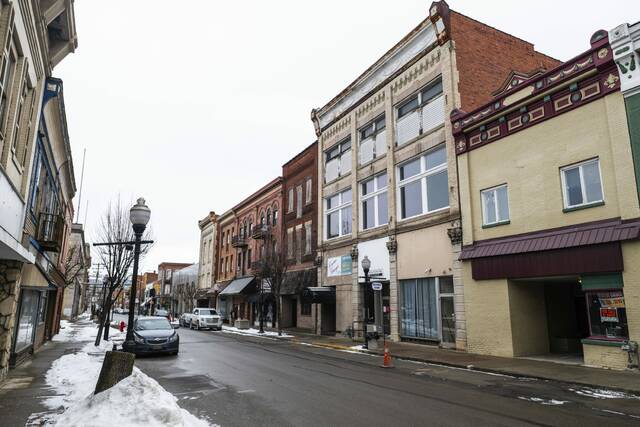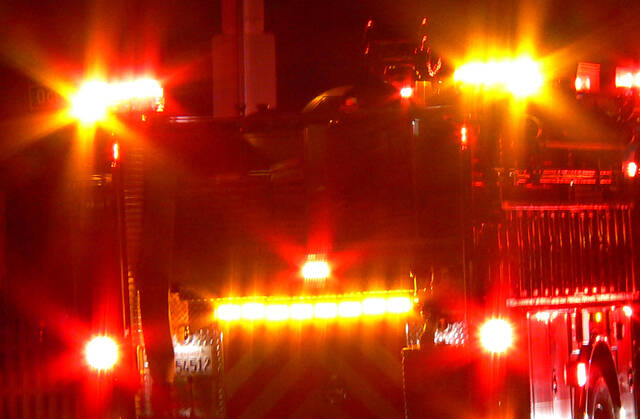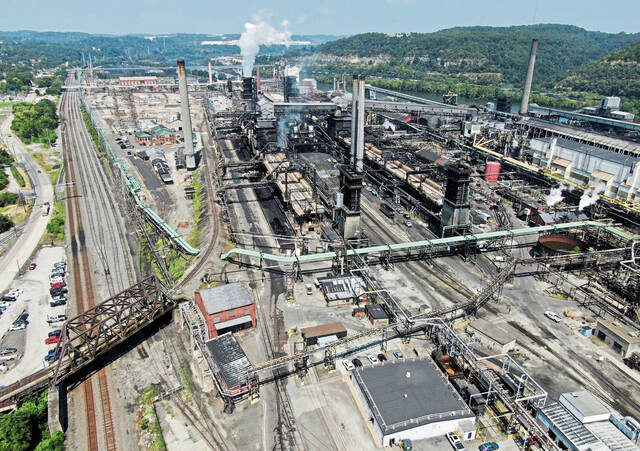Christian Klanica’s gut told him President Donald Trump wasn’t done raising steel and aluminum tariffs, so he turned down long-term production contracts and stocked up on supplies throughout the spring for his tool-and-die shop in Hempfield.
Already, the 25% tariffs on these metals imposed in March have inflated the cost of making circuit breaker parts and other components by about 10%, half of which Klanica is passing on to Leese and Co. Inc.’s customers.
His instinct was vindicated late last month when Trump announced at a Pittsburgh rally a doubling of tariffs on these metals to 50% for all countries except the United Kingdom.
The higher import taxes went into effect June 4, injecting further uncertainty into sectors reliant on large quantities of steel and aluminum.
“Right now, you have to have faith, to some extent, and maybe some caution,” Klanica said. “This may not even last or be anything.”
About a quarter of all steel and half of all aluminum used in the U.S. is imported, mostly from Canada and Mexico. At least when it comes to steel, said MEPS International analyst Laura Hodges, the tariff is so high it effectively cuts off imports.
That means domestic producers will need to fill that gap. But unlike raising tariffs, adding industrial capacity can’t be done in an instant. The effect, Hodges predicted, will be an early spike in prices before they settle above the prior baseline.
The cost per ton of hot-rolled coil steel — a common benchmark for overall steel prices — has climbed 15% for U.S. buyers from about $750 to $860 since Trump announced the 25% tariffs in February. As for aluminum, U.S. prices per ton have gone up 88%, from $634 to $1,194.
Cars and appliances could be especially hard hit. Home builders, reliant on steel fasteners and aluminum electrical equipment, might see the cost of doing business rise.
And consumers could end up paying more for all kinds of canned foods and beverages. The exact impact will take time to play out, including in the U.S. pricing data, according to experts.
Some businesses were only starting to see the effects of the 25% tariffs trickle down to them. It was just a month ago that Skye Azzarone, manager of Dan’s Appliance in Leechburg, received a letter from the store’s warehouse with a list of projected price increases.
Indeed, manufacturer-suggested retail prices have gone up. The cost of a certain Maytag washer, for example, is now $629, up 5% from $599. A 33-inch-wide Whirlpool refrigerator should run customers $1,099 instead of $999, according to appliance makers.
Azzarone said the store has responded by raising the price of some appliances, though the increases have generally been less drastic than what manufacturers recommend.
As for the 50% tariffs, “I’m not sure what to expect in the future,” she said.
Giant Eagle also is taking a wait-and-see approach, spokeswoman Jannah Drexler told TribLive. The grocer acknowledged products with aluminum “may be impacted across the grocery industry.”
Bill Clevenger picked a heck of a time to relaunch Duquesne Brewing Co. — in March, the same month the first wave of tariffs on aluminum went into effect. The cost of his cans have gone up about 15% since, he said, though he hasn’t passed along any of that to customers.
Relief is in sight. Within a few months, Clevenger said, he’ll have switched to a can maker that only uses American-made aluminum, which he expects will bring costs back to what they were in March.
“We’ll take this little bump, blip on the screen for now,” Clevenger said.
Why the increase?
Trump has tinkered with tariffs on these metals using a national security clause in the Trade Expansion Act of 1962, but that’s only half the rationale.
In his executive order, Trump cited “projected national defense needs” as well as the “industries’ sustained health.”
He also made his views clear during the May 30 rally at U.S. Steel’s Irvin Works in West Mifflin, where he announced the tariff hike, by saying the move would “further secure the steel industry in the U.S.”
U.S. Steel, based in Pittsburgh, is entering a $14 billion so-called partnership with Japan’s Nippon Steel, though it’s still unclear exactly what that means.
Both companies declined to comment on the possible tariffs impact. U.S. Steel applauded the first wave of tariffs as key to confronting China’s dominance in steelmaking, which critics say comes in part through unfair trade practices.
Alcoa, one of the country’s largest aluminum producers and another Pittsburgh-based firm, simply said it’s “evaluating the announcement” in relation to demand and pricing trends.
Trump also instituted steel and aluminum tariffs in 2018, taxing steel imports at 25% and aluminum imports at 10%. The targeted industries gained 1,000 jobs — but 75,000 jobs disappeared in downstream sectors, according to researchers at Harvard University and the University of California at Davis.
Already, some interest groups are sounding the alarm. The Consumer Brands Association, whose members include Coca-Cola, Campbell’s and Del Monte, has warned the 50% tariffs could put up to 20,000 food manufacturing jobs at risk.
Patrick Horan, a research fellow with the Mercatus Center at George Mason University, expects steel and aluminum makers will once again see minor job growth at the expense of the businesses who buy from them.
“I’m really skeptical there’s a net benefit here,” said Horan, who specializes in trade and monetary policy. “In general, I’m really skeptical of tariffs as a good idea to boost employment in the United States.”


